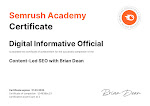How Meta Benefits from WhatsApp
How Meta Benefits from WhatsApp
Meta, formerly known as Facebook, has been strategically expanding its portfolio to encompass various digital platforms and technologies. One of the key acquisitions that has significantly contributed to Meta's growth and diversification is WhatsApp.
This messaging application, with its massive user base and robust features, offers Meta numerous opportunities to enhance its services and strengthen its position in the digital landscape.
Introduction to Meta and WhatsApp
Meta, under the leadership of CEO Mark Zuckerberg, has undergone a transformative journey from being primarily a social media platform to a conglomerate encompassing various digital realms.
With the rebranding to Meta, the company has signaled its ambition to dominate the metaverse, a virtual universe where people can interact, work, and play.
WhatsApp, on the other hand, is a messaging platform that revolutionized communication by enabling users to send text messages, make voice and video calls, and share media across the globe.
Acquired by Meta in 2014, WhatsApp operates independently but is integrated into Meta's overarching strategy.
What is Meta's Strategy with WhatsApp?
Meta's strategy with WhatsApp revolves around integration and expansion. By integrating WhatsApp into its existing platforms such as Facebook, Instagram, and Messenger, Meta aims to create a seamless digital ecosystem where users can communicate effortlessly across different channels. Additionally, Meta is leveraging WhatsApp for business purposes, enabling companies to connect with customers and conduct transactions directly through the messaging app.
Enhanced Communication and Connectivity
The integration of WhatsApp into Meta's platforms enhances communication and connectivity among users. For example, users can easily share content from Facebook or Instagram directly to WhatsApp, enabling seamless sharing and interaction.
This integration not only improves user experience but also strengthens Meta's presence in the messaging space, where WhatsApp enjoys unparalleled popularity.
Data Integration and Utilization
One of the significant benefits for Meta is the access to WhatsApp's user data. With billions of active users, WhatsApp generates vast amounts of data that Meta can leverage for targeted advertising and personalized content delivery.
By analyzing user behavior and preferences on WhatsApp, Meta can enhance its advertising algorithms and deliver more relevant content to users across its platforms.
Expansion of Ecosystem
Meta's acquisition of WhatsApp also opens doors for the expansion of its ecosystem into new frontiers such as virtual reality (VR) and augmented reality (AR).
By integrating WhatsApp with VR and AR technologies, Meta envisions a future where users can communicate and interact in immersive digital environments. This expansion not only diversifies Meta's offerings but also reinforces its position as a leader in the emerging metaverse.
Challenges and Concerns
Despite the potential benefits, Meta's integration of WhatsApp is not without challenges and concerns. Privacy issues and data security remain significant concerns, especially given Meta's history of data mishandling.
Regulators are scrutinizing Meta's practices, raising questions about antitrust violations and monopolistic behavior. Addressing these challenges will be crucial for Meta to maintain trust and credibility among users and regulators alike.
Future Outlook
Looking ahead, Meta's integration of WhatsApp is poised to reshape the digital landscape in profound ways. As Meta continues to innovate and expand its offerings, the boundaries between social media, messaging, and virtual reality will blur, creating new opportunities and challenges.
The impact of Meta's strategy with WhatsApp will extend beyond communication and connectivity, shaping the future of technology and society.
Conclusion
Meta stands to benefit significantly from its integration of WhatsApp into its ecosystem. By leveraging WhatsApp's massive user base and robust features, Meta can enhance communication, leverage data for targeted advertising, and expand its digital ecosystem into new frontiers.
However, challenges such as privacy concerns and regulatory scrutiny loom large, requiring Meta to navigate carefully as it pursues its ambitious vision for the future.
FAQs
How does Meta use WhatsApp data for advertising? Meta analyzes user data from WhatsApp to understand user preferences and behavior, allowing for more targeted advertising across its platforms.
Is WhatsApp integrated with Meta's other platforms? Yes, WhatsApp is integrated with Meta's platforms such as Facebook, Instagram, and Messenger, enabling seamless sharing and communication.
What are some privacy concerns associated with Meta's integration of WhatsApp? Privacy concerns include the handling of user data and potential breaches of privacy due to data sharing across platforms.
How does Meta plan to address regulatory scrutiny regarding its integration of WhatsApp? Meta is working closely with regulators to address concerns and ensure compliance with privacy and antitrust regulations.
What are the future implications of Meta's strategy with WhatsApp? The integration of WhatsApp into Meta's ecosystem could reshape the digital landscape, impacting communication, advertising, and the evolution of the metaverse.






















Post a Comment